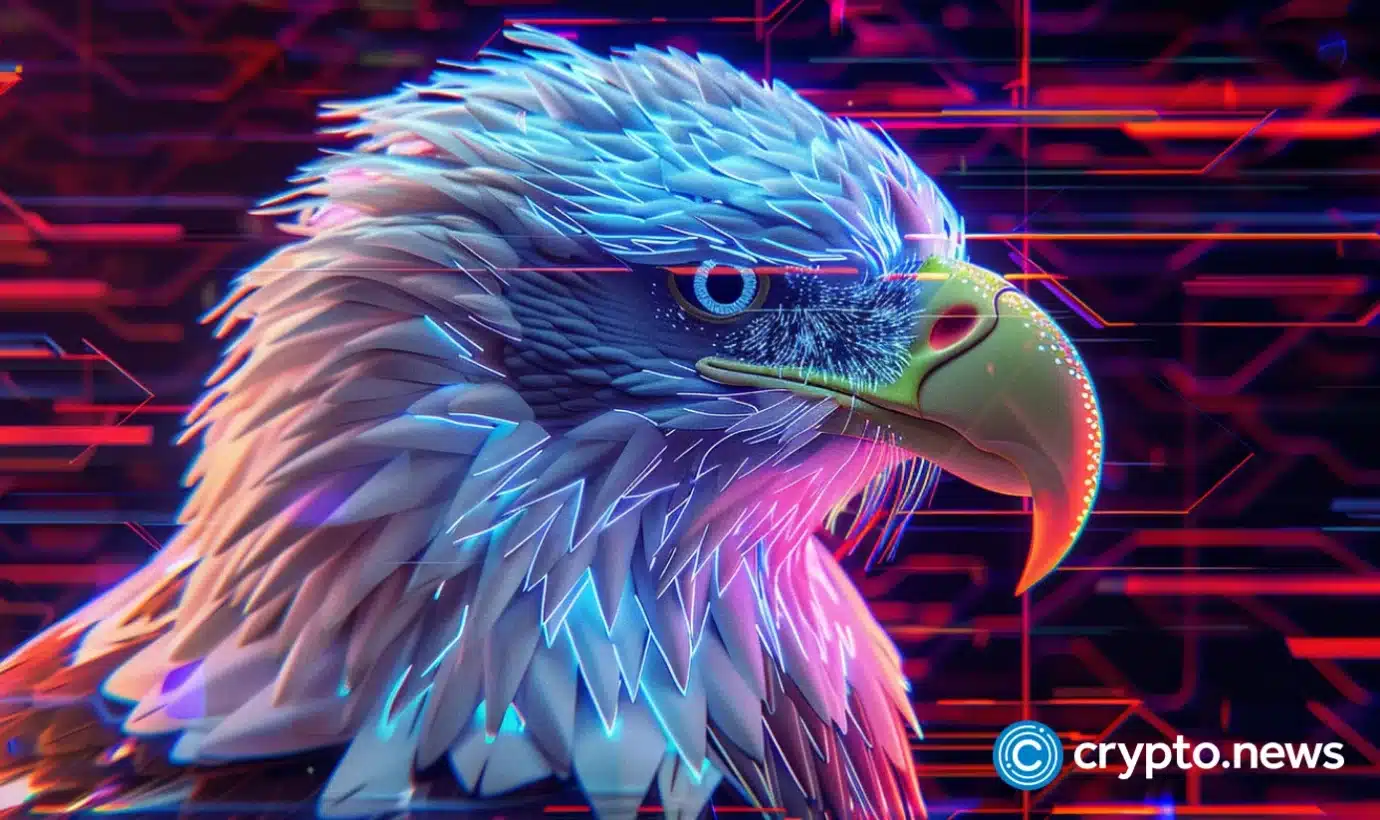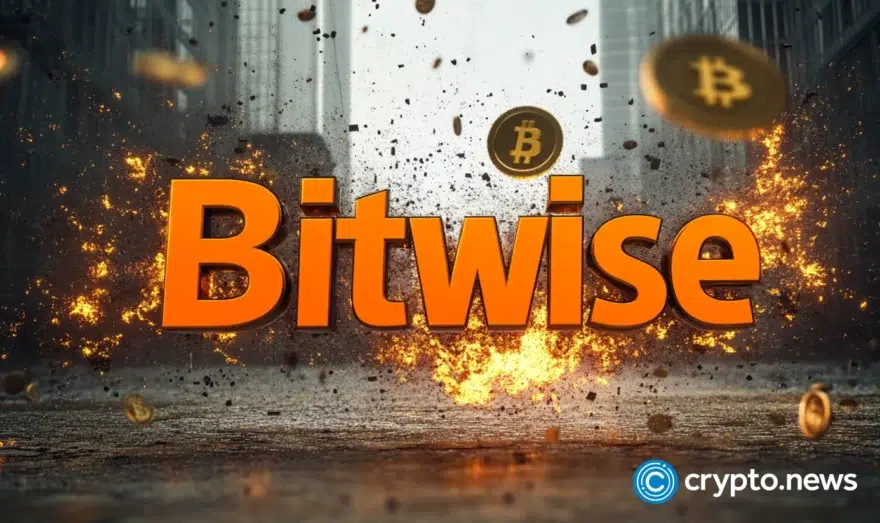SEC’s regulatory hammer falls: OpenSea, Custodia, and the revival of Operation Choke Point 2.0

Could Operation Choke Point 2.0 and the SEC’s focus on OpenSea and Custodia push the crypto industry into a corner?
Table of Contents
SEC strikes the crypto industry again…
As the U.S. approaches the upcoming presidential elections, the crypto industry once again finds itself at a crossroads.
With Democratic candidate Kamala Harris viewed by many as a potential ally, the current administration, led by SEC Chair Gary Gensler—appointed by President Joe Biden—has ramped up its regulatory actions, now setting its sights on the non-fungible token market.
On Aug. 28, the SEC issued a Wells notice to OpenSea, the largest NFT marketplace, signaling its intent to take enforcement action against the platform.
A Wells notice is a formal communication from the SEC indicating that the agency is considering enforcement action against a company or individual, and it provides them an opportunity to respond before a final decision is made.
According to OpenSea’s CEO, Devin Finzer, the SEC contends that certain NFTs on the platform may be classified as securities—a claim that could have stark repercussions for the entire NFT space.
This notice arrived just a day after former President Donald Trump, who has positioned himself to be pro-crypto, launched his fourth collection of digital trading card NFTs, which included unique perks like pieces of his debate suit and exclusive experiences at Trump National Golf Club.
OpenSea isn’t alone in facing the SEC’s scrutiny. In April, decentralized exchange Uniswap (UNI) also received a Wells notice, with the SEC alleging that it was operating as an unregistered securities broker.
Other major players like Coinbase, Kraken, and Robinhood have faced similar actions in the past.
These moves indicate that Operation Choke Point 2.0—believed to be a Biden administration strategy to sever the crypto industry’s ties with traditional banking services—is still in full force. What’s really happening?
Dissecting the OpenSea saga
In his tweet, Finzer expressed deep concern over the SEC’s approach, describing it as a “sweeping move against creators and artists.”
According to Finzer, the SEC alleges that the sale of NFTs on OpenSea broke securities laws because NFTs are considered securities, and those transactions constituted sales of unregistered securities.
The CEO pointed out that this action could stifle innovation across the NFT space, potentially affecting hundreds of thousands of online artists and creatives. The crux of Finzer’s argument is that NFTs are fundamentally different from financial securities.
Finzer mentioned, “NFTs are fundamentally creative goods: art, collectibles, video game items, domain names, event tickets, and more,” arguing that they should not be regulated in the same way as traditional financial instruments.
OpenSea contests the regulator’s allegations, asserting that they do not apply and that the platform is “ready to stand up and fight.”
From student artists finding full-time careers selling their digital art to indie game developers creating open markets for their in-game items, NFTs have enabled new opportunities that would be at risk if the SEC’s actions continue unchecked.
As Finzer mentioned, “it would be a terrible outcome if creators stopped making digital art because of regulatory saber-rattling.”
Finzer also drew attention to ongoing legal battles that echo OpenSea’s plight. He referenced the lawsuit filed against the SEC by musician Jonathan Mann and conceptual artist Brian Frye, who feared that the sale of their art and music could be classified as unregistered securities offerings.
To combat the SEC’s latest move, OpenSea has pledged $5 million to support NFT creators and developers who might find themselves in similar legal battles.
Regulatory ambiguity surrounding NFTs
When it comes to NFTs in the U.S., the regulatory environment is still murky. This lack of clear rules has created confusion and uncertainty, not just for creators and buyers, but also for platforms facilitating NFT transactions.
Currently, there isn’t a specific law in the U.S. that governs NFTs. Instead, regulators like the SEC attempt to fit NFTs under existing laws, which were primarily designed for traditional financial products.
The big question regulators are asking is: are NFTs securities? If they are, they would fall under strict SEC regulations, similar to stocks or bonds. But this is where things get tricky.
According to the Howey Test, a legal standard used by the SEC to determine whether something is a security, an asset is considered a security if it involves an investment of money in a common enterprise with an expectation of profit derived from the efforts of others.
This test was originally designed for traditional investments, but now the SEC is applying it to NFTs, which are often bought for reasons other than profit, such as collecting or supporting an artist.
The main problem with applying existing regulations to NFTs is that they don’t account for the market’s diversity and complexity.
NFTs can represent anything from digital art to in-game items, each with its own unique characteristics and value proposition. Applying a one-size-fits-all regulatory approach could stifle innovation and limit the potential of NFTs.
For example, if all NFTs are classified as securities, platforms would need to comply with the same regulations as stock exchanges, which could be incredibly costly and complicated.
Smaller creators and developers might find it impossible to meet these requirements, potentially pushing them out of the market entirely. This could limit the diversity and creativity that have made NFTs so popular.
Moreover, there’s a global aspect to consider. The U.S. is just one part of the global NFT market, and over-regulation in the U.S. could push NFT activities to other countries with more favorable regulations.
The SEC’s recent actions, including the Wells notice sent to OpenSea, signal a more aggressive approach to regulating the NFT space. By potentially classifying certain NFTs as securities, the SEC is attempting to extend its regulatory reach, which could increase costs for users and reduce the number of new NFTs entering the market.
Ripple effects across the industry
The ongoing crackdown under Operation Choke Point 2.0 is sending shockwaves not only through the NFT market but across the entire crypto industry.
A clear example of this is the recent restructuring at Custodia Bank, a small yet influential financial institution based in Wyoming that serves crypto companies.
Custodia Bank, once a key provider of banking services to crypto businesses, recently announced the layoff of nine out of its 36 employees, as reported by Fox Business. This difficult decision was made to preserve capital as the bank battles the Federal Reserve in court.
At the core of this legal battle is Custodia’s pursuit of a master account with the Fed—a crucial asset that would grant the bank access to the central bank’s liquidity facilities and payment services.
Without this account, Custodia is forced to operate through other institutions that do have master accounts, leading to much higher operational costs.
Banking regulators have become increasingly cautious about allowing traditional banks to engage with crypto firms. This heightened scrutiny has made many traditional banks hesitant to maintain relationships with crypto companies, contributing to a growing sense of isolation within the industry.
Despite assurances from government officials, including Deputy Treasury Secretary Wally Adeyemo, that there is no coordinated effort to exclude the crypto industry from the broader financial system, the experiences of industry participants suggest otherwise.
Custodia Bank itself has faced this harsh reality, with two of its partner institutions terminating their relationships, leaving it even more vulnerable as it fights for survival.
The crackdown under Operation Choke Point 2.0 reflects the real-world impact of regulatory pressure on the crypto industry. Even a small, state-chartered bank like Custodia, which plays a critical role for businesses lacking other banking options, is struggling to stay afloat.
Social media backlash
The SEC’s recent move against OpenSea has sparked a wave of frustration and anger across social media, with many users expressing disbelief and concern over what they perceive as a heavy-handed approach to regulating the NFT market.
One of the most angered critics highlighted the absurdity of labeling NFTs as securities. The user questioned whether the SEC would also start classifying “paintings” or “Beanie Babies” as securities, sarcastically asking if “eBay” might be next on the SEC’s list.
Another user expressed disbelief at the SEC’s continued actions against the crypto industry, lamenting the agency’s measures as a direct assault on innovation.
The frustration isn’t limited to the SEC’s actions alone; it extends to the political sphere as well. One user even voiced their disillusionment with the Democratic Party.
Drawing a historical parallel, another user pointed out that in 1976, the SEC ruled that art galleries did not need to register as securities dealers, even when promoting and selling art as investments.
The tweet wryly notes the inconsistency in the SEC’s stance, suggesting that while “galleries” were deemed acceptable, “NFT marketplaces” are not.
The growing chorus of voices on social media reflects a deepening divide between the crypto community and regulatory bodies like the SEC.
As these discussions continue, the debate over how to regulate digital assets is far from over, with many in the industry calling for more clarity and fairness.

















